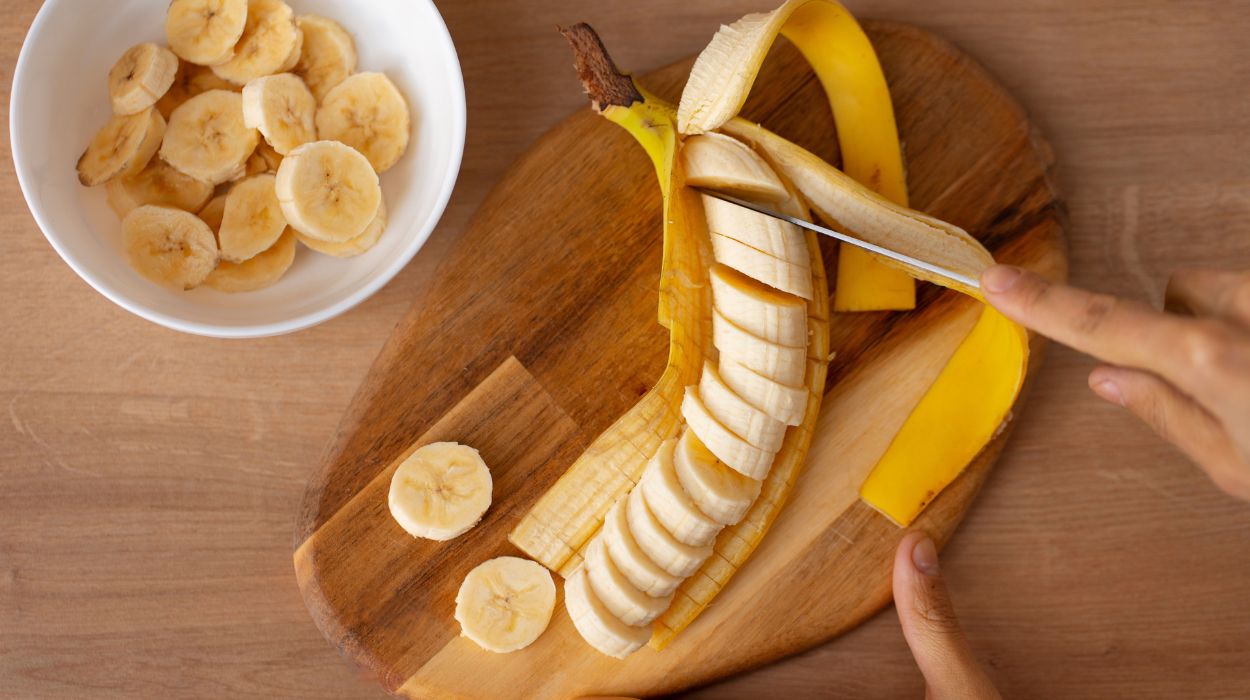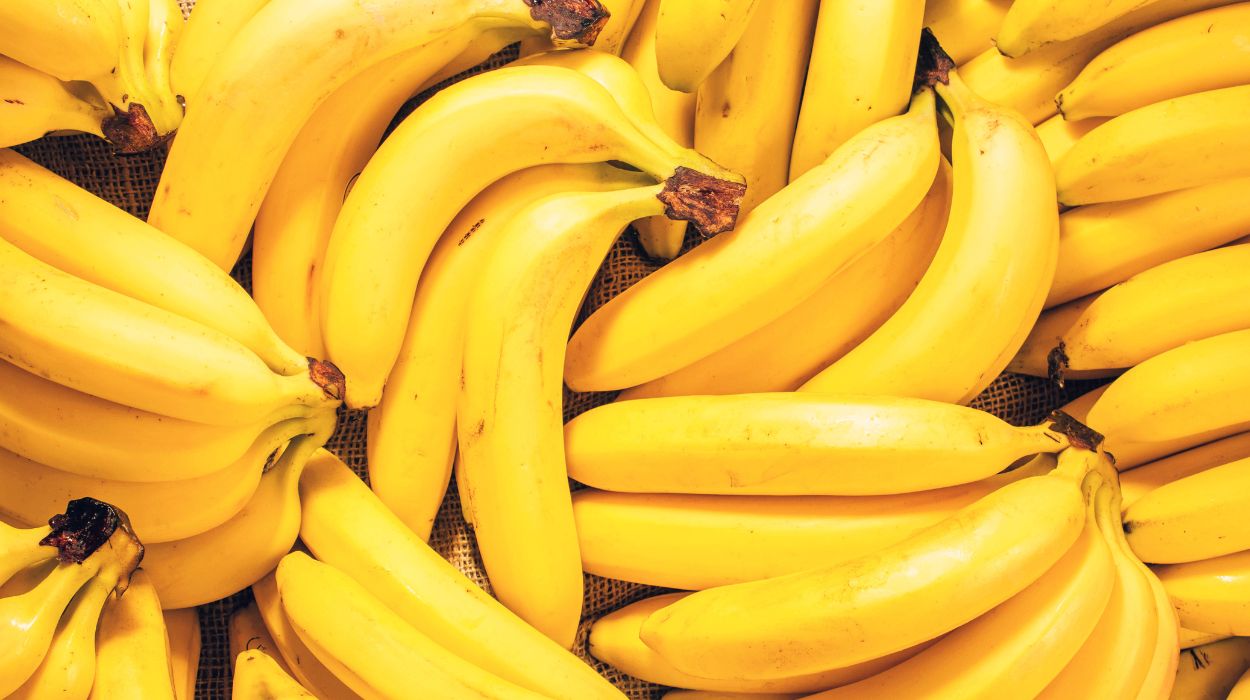Bananas are a staple in smoothies, desserts, fruit salads, sundaes, and more. They also offer a convenient snack when on the go. Yet, rumor has it that bananas negatively impact blood sugar levels. So, with this in mind, are bananas good for weight loss?
Surprisingly, bananas can be part of a balanced diet. In this article, we take a closer look at how you can eat bananas and lose weight, as well as what else you should know to make your weight loss journey a success.
Are Bananas Weight Loss-Friendly?
This depends. Bananas can be part of a healthy weight loss diet. However, other factors need to be taken into account, such as creating a calorie deficit for weight loss to take place. Overall, bananas contain plenty of nutrients that offer health benefits. In turn, this can contribute to sustainable weight loss efforts when other dietary choices are considered.
Are Bananas Good For Weight Loss?

While bananas might have a bad reputation due to their sugar content, this doesn’t necessarily mean you must avoid them to lose weight.
For the most part, healthy weight loss comes down to a calorie deficit, which means expending more calories than you consume. Usually, this means eating slightly fewer calories each day since this is frequently more sustainable.
However, one medium banana may easily fit into your total daily calories. So, let’s explore how many calories are in a banana and its total nutritional value.
One medium banana[1] contains:
- 105 calories.
- 1 gram of protein.
- 27 g of carbs.
- 3 g of fiber.
- 14 g of sugar.
- 6 mg of calcium.
- 32 mg of magnesium.
- 26 mg of phosphorus.
- 422 mg of potassium.
- 1 mg of sodium.
- 10 mg of vitamin C.
- 11.6 mg of choline.
It also includes trace amounts of iron, zinc, copper, manganese, selenium, B vitamins, and vitamin A, E, and K. All of these nutrients will keep you healthy as you work on losing weight.
How Eating Bananas Can Help You Lose Weight
So, are bananas good for you to lose weight? Since bananas are packed with nutrients, they can have various health benefits for weight loss. These include:
Increases Feelings Of Fullness
One medium sized banana has about three grams of fiber. The daily recommended amount of fiber[2] for the average adult ranges between 18 and 38 grams. Yet, every little bit counts.
Ripe bananas contain primarily soluble fiber.[3] Soluble fiber, in particular, is shown to form a gel-like substance in the digestive tract when mixed with water. In turn, research suggests this slows the emptying of the stomach, increases feelings of satiety, and regulates appetite.[4]
This may mean you’re less likely to reach for a snack in between meals, which can contribute to decreased food intake and healthy weight loss.
May Provide Healthy Fuel For Exercise
Exercise can support weight loss in various ways. First off, it can help burn calories and, thus, help lose fat. Secondly, exercise can build healthy muscle mass, which can improve your resting metabolic rate.[5] This means you burn more calories at rest.
Research further shows that exercise performance may improve[6] with a healthy pre-workout carbohydrate snack, like bananas. This is because bananas provide healthy carbs in the form of sugar and fiber.
Fiber is shown to slow the absorption of sugar[7] into the bloodstream. As a result, this can provide a steady source of energy throughout your workout, preventing fatigue and helping you achieve new personal bests.
Lowers The Risk Of Heart Disease
While this doesn’t necessarily contribute to weight loss, heart disease is a concern amongst those carrying excess weight. Obesity is considered a direct contributor to various cardiovascular risk factors,[8] such as high blood pressure and type II diabetes.
Yet, bananas offer plenty of benefits for overall heart health. For instance, fiber in bananas may decrease the risk of heart disease[9] by lowering LDL, “bad,” cholesterol. Potassium, also found in bananas, may further prevent hardening of the arteries.[10]
This can be particularly beneficial for overweight and obese individuals who have a higher risk of heart disease.
Improves Gut Health

Soluble dietary fiber, which is found in bananas, can improve the diversity of the gut microbiota[11] and feed “good” gut bacteria. Interestingly, research indicates that an imbalance in this gut bacteria can lead to metabolic disorders, increased appetite, and obesity.[12]
For many, improving gut health can be a cornerstone in their weight loss journey. Research also shows that good gut health is further linked with improved cognitive functioning and improved immunity.[13]
Willpower and healthy habits may play a pivotal role in weight loss. With better cognition and the possibility of getting sick less often, you may find it easier to stick to healthy habits.
Low In Calories
One medium banana contains about 105 calories, which is lower than many less healthy snacks. For example, one chocolate donut[14] contains 313 calories, which is three times that of one banana.
Fruits for weight loss provide an all-natural source of various nutrients. While this can complement greens powders and fruit and vegetable supplements, whole foods sources are always best.
Research even shows that a whole foods diet is effective[15] for healthy weight loss. Thus, it’s a good idea to get most of your calories from such sources.
Ways To Eat Bananas For Weight Loss
When hunting for healthy snacks for weight loss, bananas can be a great go-to. Containing natural sugars and plenty of nutrients, this fruit has a lot to offer.
So, how can you enjoy bananas in your diet? Here are a few ideas:
- Add them on top of Greek yogurt with nuts.
- Enjoy them in a fruit salad with other fruits.
- Throw them in your morning smoothie.
- Have them alongside oatmeal.
- Make healthy banana protein pancakes.
- Make “nice” cream with blended bananas, vanilla extract, and cinnamon.
- Enjoy raw bananas just as they are.
- Use the peels of bananas in smoothies; yes, even these have nutrients.
- Fry them and enjoy them with a bit of sea salt sprinkled on top.
Bananas are unlikely to lead to weight gain alone, meaning they can be enjoyed in multiple ways. Find a few of your favorites and include this fruit in your regular diet for its abundant nutrients and potential health benefits.
Conclusion
So, are bananas good for losing weight? This depends.
Bananas can be part of a healthy weight loss diet, as long as a caloric deficit is maintained. However, for sustainable weight loss, further strategies may include exercise, stress management, and other lifestyle changes. Go slow; effective weight loss takes time but is entirely worthwhile.
Frequently Asked Questions
Bananas can be a great fruit for weight loss due to their high fiber content and other nutrients. As long as a calorie deficit is maintained, eating bananas shouldn’t be a problem.
Bananas are, generally, low in calories, especially when compared to processed snack food options. One medium sized banana contains about 105 calories.
One to two bananas per day for snacks can help you meet your nutritional needs. At the same time, just two bananas are unlikely to go over your total daily calorie allowance. Yet, this may vary from individual to individual.
Eating bananas at night isn’t necessarily a bad choice. However, this ultimately depends on the individual. Some individuals may find they experience indigestion when eating too close to bedtime.
Grapefruit is often thought to be the best option. However, bananas can also be a great choice, depending on your other dietary choices and daily calorie allowance.
Bananas can be part of a healthy weight loss diet. It’s impossible to specifically target fat loss in the belly. However, when maintaining a caloric deficit and with weight loss, losing belly fat may occur.
This depends. Bananas may be considered high in sugar. However, they contain fiber which may slow the absorption of sugar into the bloodstream, which prevents blood sugar spikes and dips.
 Evidence Based
Evidence Based
